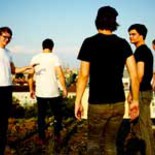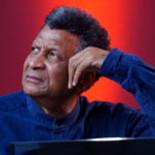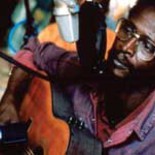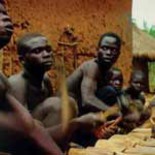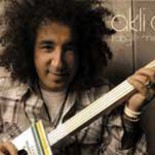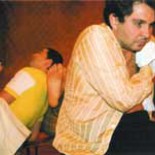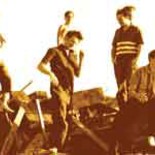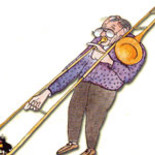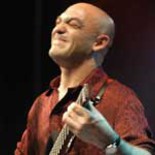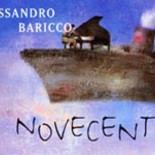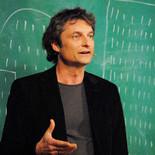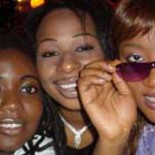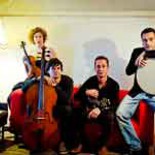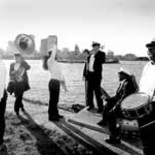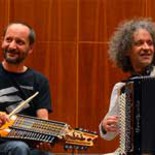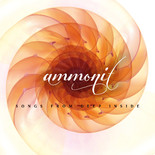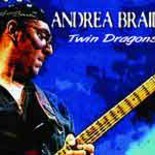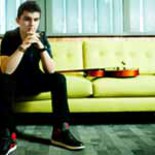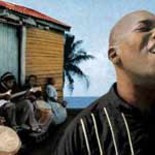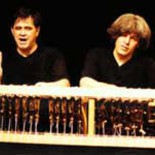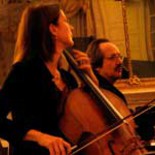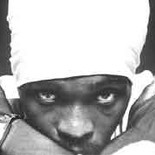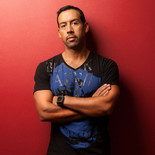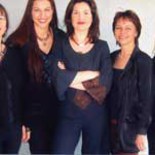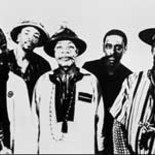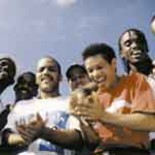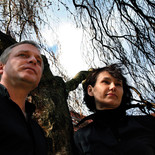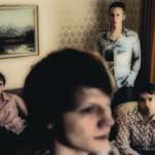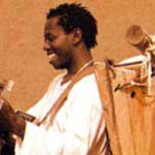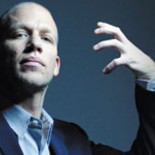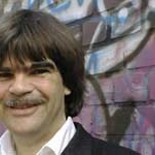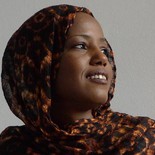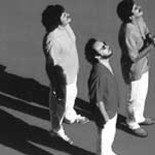ALINE FRAZAO & CLAVE BANTU
Aline Frazão, Gesang, Gitarre
Marcos Alves, Perkussion
Francesco Valente, Kontrabass
Marco Pombinho, Klavier, Gitarre
Clave Bantu wurde zwischen Luanda, Lissabon, Barcelona, Madrid und Santiago geschrieben, aber die Clave-Bantu-Geschichte beginnt sehr viel früher als diese Reise: Sie hat ihren Ursprung in den tief in der roten Erde Angolas verankerten Wurzeln eines Baumes. Dort begann der Klang dieses Notenschlüssels, fing die Überfahrt an, die Reise über das weite Meer. Die Musik auf Clave Bantu wächst zu einem Baum heran, entstammt dem historischen Wirrwarr Afrikas, kommt aus den Trommeln und heiligen Gesängen, die die Meere überquerten und in anderen Breitengraden neu entstanden – von Brasilien bis Kuba. In den Blättern des Baumes ist die Weisheit eines Volkes zu finden: Die entschleunigte Zeit, die Hitze der Körper, der Rückweg. In die Rinde haben sich die unverkennbaren Zeichen der Zeit eingegraben, Spuren des Lebens, Narben der Reise. Clave Bantu ist das Ergebnis eines lebhaften Austausches im Laufe der Zeit, im Laufe meines Lebens. Clave Bantu ist vielleicht der Anfang der Geschichte.
****
Ein aufregendes Beispiel portugiesisch-sprachiger Sängerinnen gibt die angolanische Künstlerin Aline Frazão, die afrikanischen Traditionen und ihren Weiterentwicklungen von Brasilien bis Kuba auf ihrem ersten Album „Clave Bantu“ höchst spannend nachspürt.
Aus ihrer Sicht bilden die Traditionen lusophoner Musik und die Rhythmen der afrikanischen Diaspora Teile einer großen, gemeinsamen, musikalischen Welt. Ihre Musik spiegelt den eigenen Lebensweg und ihre Reisen wider. „Clave Bantu wurde zwischen Luanda, Lissabon, Barcelona, Madrid und Santiago geschrieben.“, so Aline Frazão. Sie wuchs in Angolas Hauptstadt Luanda auf und besuchte eine portugiesische Schule. Im Radio, so erinnert sie sich, hörte sie eine Mischung von Klängen und Rhythmen aus anderen Teilen Afrikas, Europas, Nordamerikas und Brasiliens. Während des Studiums in Europa begegnete sie Musikern verschiedener Genres und Kulturen und setzte so ihre musikalische Reise fort. Heute wohnt sie in der spanischen Stadt Santiago de Compostela.
In ihren Kompositionen verbindet Aline Frazão Stilrichtungen, die in der westafrikanischen Rhythmussignatur wurzeln, die populäre Musik Brasiliens, Kubas und von den Kapverden mit Jazzeinflüssen.
Im Frühjahr 2014 wird ihr neues Album „Movimento“ im deutschsprachigen Raum veröffentlicht werden. Neben eigenen Kompositionen enthält es auch zwei Werke der angolanischen Dichter Carlos Ferreira “Cassé” and Alda Lara. Als Gäste finden sich zudem die beiden kapverdischen Musiker Miroca Paris (percussion) and Vaiss Dias (small guitar and guitar) auf dem Album ein.
Aline Frazão über ihr neues Album:
This record was really a motion, a chain joinning many talents and friendships. Everyone gave their contribution. The work was intensive, around the clock, interchaining emotions, fatigue and even the climate of this grey spring.
“Movimento” encloses within a lot of life. One of this work mark’s is that everything, songs and cover, was achieved with very few takes. It was, almost, an analogical motion. In the studio, it was never our goal to achieve a perfect sound, but a balance instead.
A simple truth. In composition, I tried not to work too much the songs, but instead I let them ask me what they needed the next day. I composed and worked on the songs thinking about the instruments, but still, there were surprises. Improvisation allows it. In that point, it was not a very premeditated album and it only was finished during the mixing stage. I really trusted the talent of all the people around me, their spontaneity, the unpredictable ideas and the songs. They sustain everything.
The musicians did a really amazing job and the communication was improved through the process. The songs breathe and the instruments are heard. There’s a beautiful communication between the bass and the piano, between the guitar and the percussion. Cape Vert’s islands are also very present in these songs. Vaiss and Miroca collaborations gave shape and continuation to my first trip to Cape Vert last year. Luanda is also present, and it is almost like an invisible character in all songs. Most of them were written there. Maybe that’s the reason why that they have that strong quality of observing, sometimes alone and in silence, other times more participant and mixed.
On the other hand, I feel that this record leads to something bigger, since I feel increasingly more supported. There’s a lot of people that I identify myself with, people that inspire me, people that interact with me almost invisibly. In Angola, I feel that there is
a new creative force, transversal to all of the arts, that somehow have become organized. It has been gaining some space, saying what it has to be said, letting go of the old endless conversations and taking themselves to quick action and expression. The answer
is in the team effort. We want. We think. We feel. We do. That’s what “Movimento” is all about.
